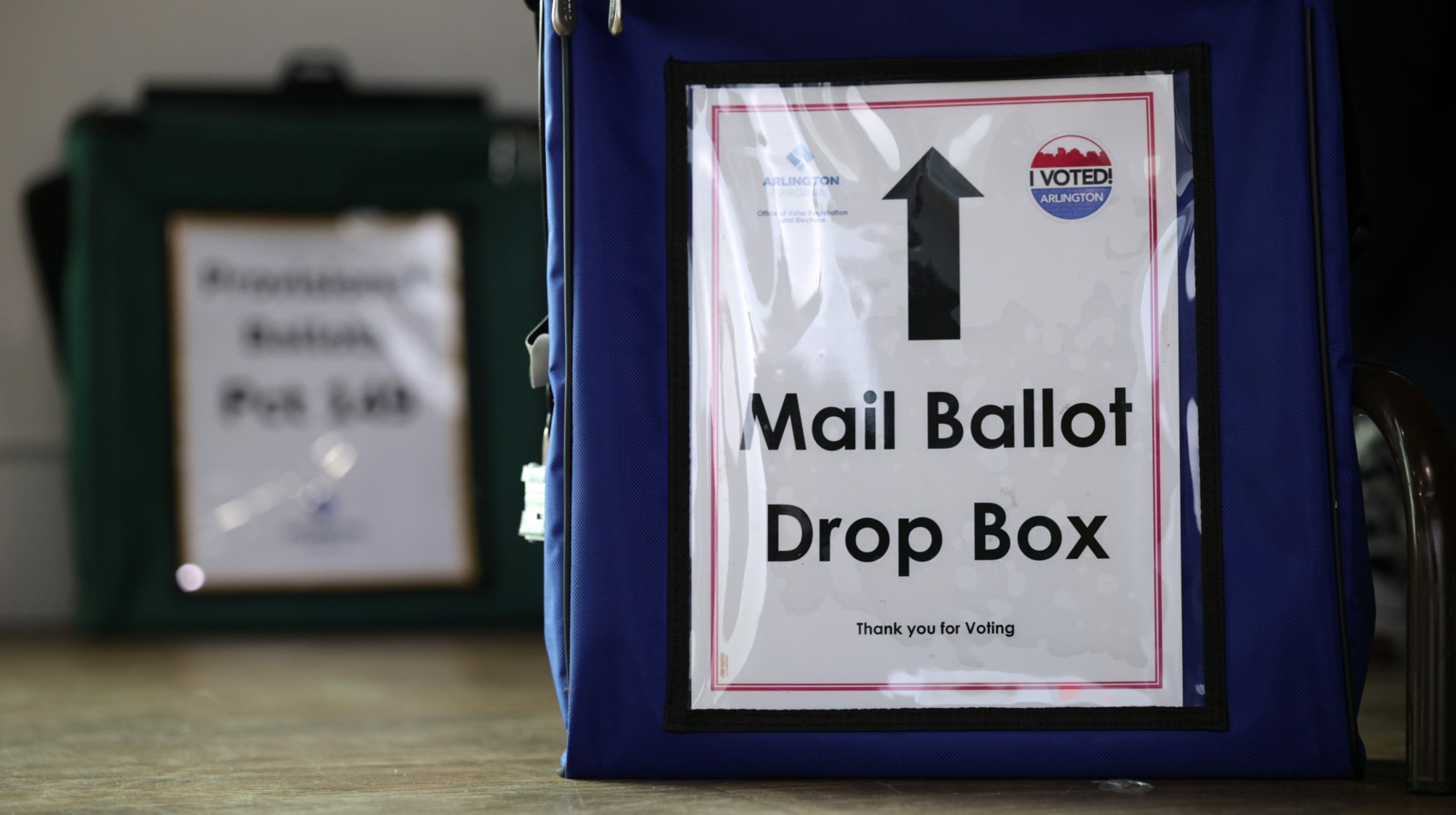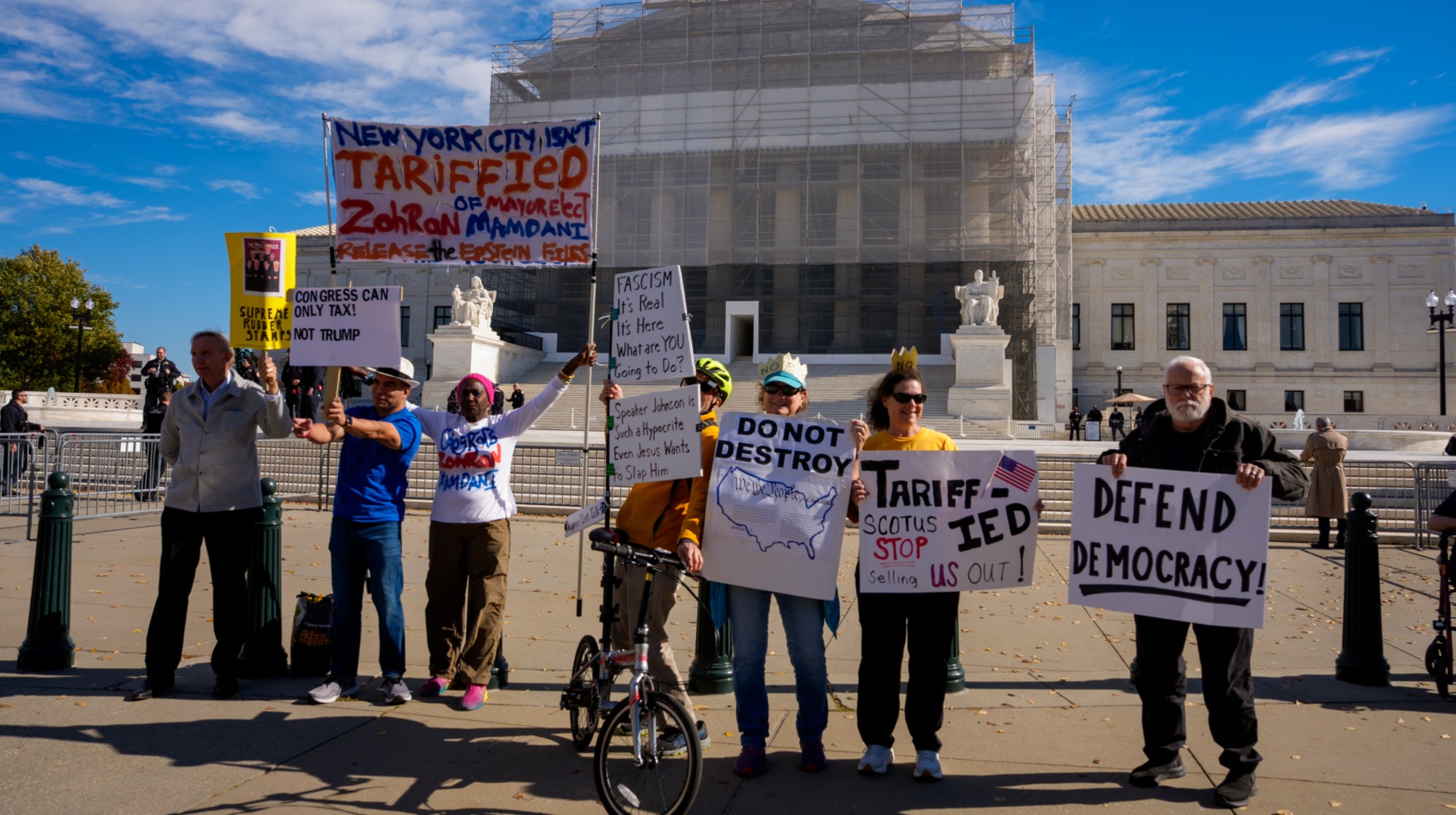The coming Republican power grab on the Supreme Court
It would be hard to imagine anything more damaging to the civic health of the nation


A free daily email with the biggest news stories of the day – and the best features from TheWeek.com
You are now subscribed
Your newsletter sign-up was successful
With a deadly pandemic rampaging across the country and the president threatening to deploy armed federal agents to quash protests in numerous cities over the objection of local elected officials, it's understandable that there's been relatively little attention paid to the possibility that Republicans may soon attempt an unprecedented and dangerously antidemocratic power grab on the Supreme Court.
Justice Ruth Bader Ginsburg, one of the high court's four liberals, was recently hospitalized with what was described as a possible infection. Three days later, the 87-year-old justice announced that she has been diagnosed with a recurrence of cancer and is undergoing chemotherapy. (Ginsburg was treated for colon cancer in 1999, pancreatic cancer in 2009, and lung cancer in 2018. Her current diagnosis concerns a recurrence of pancreatic cancer in her liver.)
If Ginsburg dies between now and Election Day, the Trump administration and Senate Majority Leader Mitch McConnell (R-Ky.) will face a momentous choice. One possibility is that they will follow the principle McConnell enunciated in 2016 to justify blocking hearings and a vote on Merrick Garland, Barack Obama's choice to replace conservative stalwart Antonin Scalia, who died in February of that year. In that case, the party would wait for voters to have their say on Nov. 3. If Republicans maintain control of the executive branch and the Senate, then President Trump would go ahead and nominate a conservative justice to Ginsburg's seat and the Senate would presumably confirm the nominee. But if Trump goes down to defeat and Republicans lose control of the Senate, the seat on the high court would remain vacant until a new president got a chance to fill it. That's how Trump himself ended up naming conservative Neil Gorsuch to succeed Scalia.
The Week
Escape your echo chamber. Get the facts behind the news, plus analysis from multiple perspectives.

Sign up for The Week's Free Newsletters
From our morning news briefing to a weekly Good News Newsletter, get the best of The Week delivered directly to your inbox.
From our morning news briefing to a weekly Good News Newsletter, get the best of The Week delivered directly to your inbox.
But there's another and far more ominous possibility — one that Sen. Joni Ernst (R-Iowa) laid out in a recent interview. In the event that Ginsburg dies while Trump remains president and Republicans maintain control of the Senate, they would work together to nominate and confirm a conservative justice — even if this involves the president making his nomination after losing the election and the Senate holding a vote during its lame-duck session, just prior to handing over power to a new Democratic majority.
Not only would this demonstrate beyond a shadow of a doubt what pretty much everyone has assumed from the start, which is that McConnell's high-minded rationale for blocking the Garland nomination (that it came too close to Election Day to proceed without giving voters a say) was just power politics dressed up with an ad hoc pretext of principle. It would also show that, far from deferring to the will of the voters, the contemporary Republican Party displays outright contempt for democratic public opinion when it fails to deliver conservative outcomes.
It would be hard to imagine anything more damaging to the civic health of the nation.
We spend too much time debating the procedural rights and powers of elected officials and not enough thinking through the wisdom or folly of them making specific choices with the rights and powers they clearly possess. Can Trump and McConnell push through a high court nomination in December, in blatant defiance of public opinion, if they wish? The answer is probably yes. But it's far more important to understand why they shouldn't do such a thing — and what is likely to follow if they do.
A free daily email with the biggest news stories of the day – and the best features from TheWeek.com
When asked to explain their defiance of public opinion, conservatives typically revert to the cliché that our country is "a republic and not a democracy." This is supposed to justify Republican moves to manipulate (and add to) our system's many counter-majoritarian rules and institutions to enhance GOP power despite the party's waning ability to win elections outright. But our government's republican character isn't designed to systematically thwart the will of the party or faction of the electorate that wins the most votes and reward the party or faction that loses. It's designed to break the electorate into multiple groupings or clusters, giving each the power to check and balance the others. That makes us a democratic republic, not an anti-democratic one — which means that the perceived legitimacy of the system ultimately rests on its responsiveness to public opinion.
We elect House members from local districts, senators at the state level, and the president nationally (indirectly, through the state-based Electoral College). Supreme Court justices, meanwhile, are nominated by the president and confirmed by the Senate, placing them one step removed from public opinion. But all of them are ultimately supposed to be answerable to the voters.
The main way to gauge this popular responsiveness is by holding periodic elections. McConnell's refusal to hold hearings and schedule a vote on Merrick Garland's nomination to the court paid lip service to this consideration. The most that could be said in its favor is that, given the monumental consequences of appointing a (moderate) liberal to a seat on the court formerly held by a staunch conservative at a time of intense partisan polarization, it made sense to see which way the winds of public opinion were blowing later that same year. That a Republican ended up winning the power to name Scalia's successor despite losing the popular vote by three million only drove home the system's declining capacity to respond adequately and accurately to public opinion.
But that's nothing compared with what would happen if Trump and McConnell pushed through a lifetime conservative successor to Ginsburg immediately after losing the presidency and control of the Senate. Far more than the block on Garland's nomination four years ago, this would signal to the country and the world that one of America's two major parties is willing to defy public opinion outright — at least when it moves against the party and the ideological commitments of its voters.
When public opinion as expressed through elections is flagrantly defied in a democratic republic, only one alternative remains to the people — and that is to reject the legitimacy of the system itself. Both parties have been inching in this direction in recent years. But we've never seen anything in living memory like what would transpire with such a blatantly anti-democratic power grab on the part of the Republican Party. Prepare for a strong push in favor of progressive court packing, and then a revival of the conservative case for the state-level nullification of Supreme Court decisions. And of course, Republicans would pack the court with even more conservative justices at their first opportunity, which would lead the Democrats to embrace blue-state nullification for decisions they reject.
It's hard to see how the Supreme Court could survive as an institution under such conditions — or how the clashes emanating from the conflict could fail to infect the other branches of the federal government, individual state governments, and the country at large.
Ramming through a right-wing nominee to the high court, shifting its balance even further away from the left, immediately after an election delivered a popular repudiation of Republican governance, would mark an unprecedented escalation of partisan warfare in the United States and begin the breakdown of self-government itself.
Mitch McConnell would be wise to think long and hard about whether he really wants to be remembered as the man who helped usher in the end of democracy in America.
Damon Linker is a senior correspondent at TheWeek.com. He is also a former contributing editor at The New Republic and the author of The Theocons and The Religious Test.
-
 Why are election experts taking Trump’s midterm threats seriously?
Why are election experts taking Trump’s midterm threats seriously?IN THE SPOTLIGHT As the president muses about polling place deployments and a centralized electoral system aimed at one-party control, lawmakers are taking this administration at its word
-
 ‘Restaurateurs have become millionaires’
‘Restaurateurs have become millionaires’Instant Opinion Opinion, comment and editorials of the day
-
 Earth is rapidly approaching a ‘hothouse’ trajectory of warming
Earth is rapidly approaching a ‘hothouse’ trajectory of warmingThe explainer It may become impossible to fix
-
 Supreme Court upholds California gerrymander
Supreme Court upholds California gerrymanderSpeed Read The emergency docket order had no dissents from the court
-
 The billionaires’ wealth tax: a catastrophe for California?
The billionaires’ wealth tax: a catastrophe for California?Talking Point Peter Thiel and Larry Page preparing to change state residency
-
 How robust is the rule of law in the US?
How robust is the rule of law in the US?TODAY’S BIG QUESTION John Roberts says the Constitution is ‘unshaken,’ but tensions loom at the Supreme Court
-
 Bari Weiss’ ‘60 Minutes’ scandal is about more than one report
Bari Weiss’ ‘60 Minutes’ scandal is about more than one reportIN THE SPOTLIGHT By blocking an approved segment on a controversial prison holding US deportees in El Salvador, the editor-in-chief of CBS News has become the main story
-
 The ‘Kavanaugh stop’
The ‘Kavanaugh stop’Feature Activists say a Supreme Court ruling has given federal agents a green light to racially profile Latinos
-
 Supreme Court to decide on mail-in ballot limits
Supreme Court to decide on mail-in ballot limitsSpeed Read The court will determine whether states can count mail-in ballots received after Election Day
-
 Trump tariffs face stiff scrutiny at Supreme Court
Trump tariffs face stiff scrutiny at Supreme CourtSpeed Read Even some of the Court’s conservative justices appeared skeptical
-
 Has Zohran Mamdani shown the Democrats how to win again?
Has Zohran Mamdani shown the Democrats how to win again?Today’s Big Question New York City mayoral election touted as victory for left-wing populists but moderate centrist wins elsewhere present more complex path for Democratic Party
